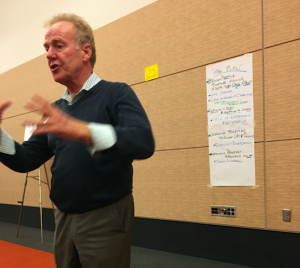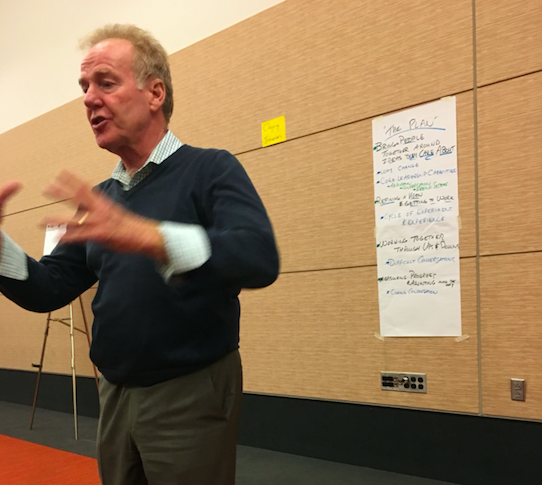 This morning I attended Peter Senge’s Keynote speech “Innovation in Learning Organizations: A Systems Thinking Approach” at EdTechTeacher’s 2016 Innovation Summit. Peter discussed invention and innovation and explained that the current age of technology that we and are students are living in is actually still part of the industrial age, not its own age. This industrial world will soon collapse under its own weight, as it creating social and ecological imbalances that are not sustainable in the long-run. What does this mean for our students’ futures? And what are the implications for us as educators?
This morning I attended Peter Senge’s Keynote speech “Innovation in Learning Organizations: A Systems Thinking Approach” at EdTechTeacher’s 2016 Innovation Summit. Peter discussed invention and innovation and explained that the current age of technology that we and are students are living in is actually still part of the industrial age, not its own age. This industrial world will soon collapse under its own weight, as it creating social and ecological imbalances that are not sustainable in the long-run. What does this mean for our students’ futures? And what are the implications for us as educators?
Gordon Brown, former professor of electrical engineering at MIT, deemed that to be a teacher is to be a prophet because you must prepare your students for a world that you can’t even imagine. How do you prepare students for this unknown future?
At a recent conference in Vancouver the Dalai Lama stated that in the 20th Century 200 Million people died in wars- clearly there must be something wrong with our education system.
Considering these factors, what can we do differently in the classroom to help prepare our students for the world that they will face upon graduation?
A true sign of learning: you leave a class, conference, lecture, or workshop with more questions than answers. John Dewey said that, “We do not learn from experience… we learn from reflecting on experience.” The very act of writing this post, while short and simple, has extended my learning. Hopefully someone reading this post will leave with more questions as well. And ideally, they will find me at lunch to continue this conversation and extend our learning even further.

Leave a Reply
You must be logged in to post a comment.